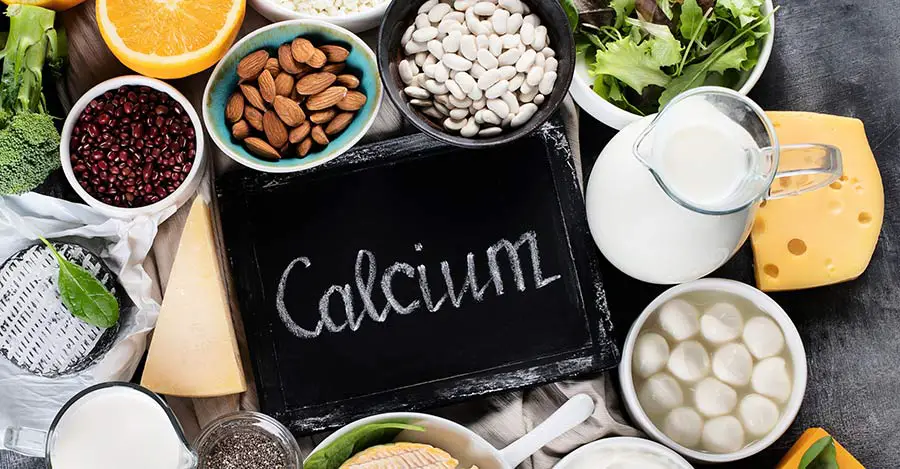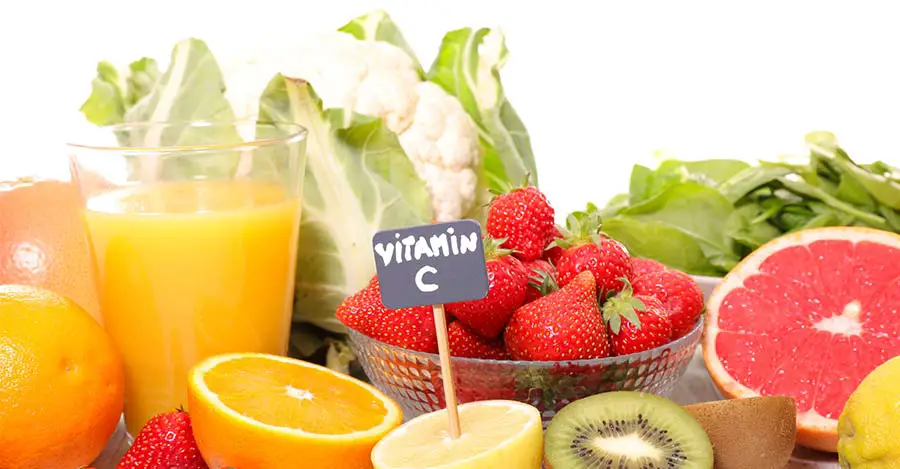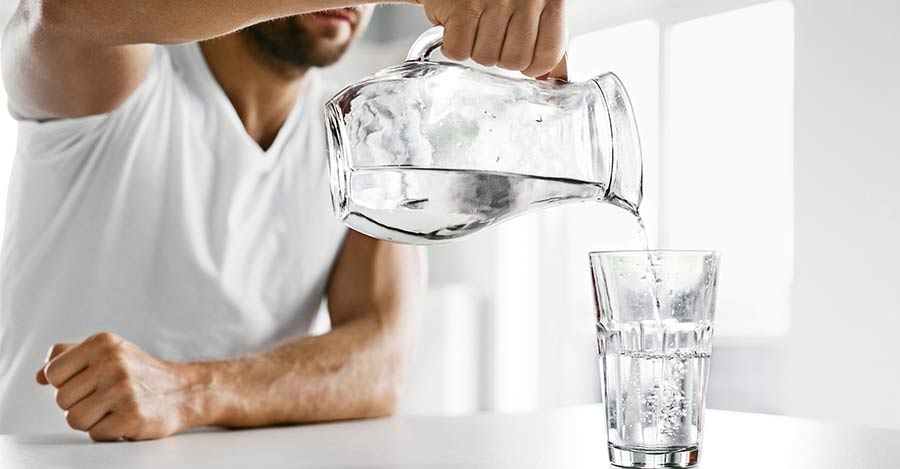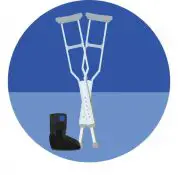Diet For Bone Fracture
Have you broken a bone by accident? Perhaps one of the very worst feelings in the world is realizing that you have broken a bone. Often it will take weeks, if not months, to heal, depending on the severity of the break. Yet, contrary to what you might believe, there is a better way to promote bone healing than resting and waiting for it to get better.
By changing your diet and upping your macronutrient and micronutrient intake, you can promote bone healing at an increased pace. Our article will look at which macronutrients and micronutrients in your diet can help heal broken bones faster.
Which Macronutrients Can Help?
Do you know what a macronutrient is? Fear not, because we will explain what macronutrients are and how they help promote bone healing. We’re also going to delve into a few of the macronutrient foods you need to eat if you have broken a bone.
Macronutrients are carbohydrates, proteins, and fats. Macronutrients are the nutrients that your body uses in the largest amounts. If you aim to eat a healthy diet, you shouldn’t exclude or restrict your body’s macronutrients.
What do macronutrients do? Macronutrients are the nutritional components you need to eat so that your body can produce energy. You need to eat certain macronutrients if you want your broken bone to heal faster. We will look at one of the most crucial macronutrients for bone health.
Protein

Were you aware that approximately half your bone structure is made up of protein? When you break a bone, your body needs protein to rebuild it. Additionally, protein helps your body absorb and use calcium, a key micronutrient that we will discuss soon.
You will slow down the healing process if you don’t eat protein-rich foods after breaking a bone. This is because it has been proven that protein deficiency slows down bone healing. It’s recommended that you consume 0.035 to 0.053 ounces of protein per pound for optimal bone health. Let’s look at an example. If you weigh 150 pounds, you need 2.4 to 3.5 ounces of protein every day.
Which Macronutrient Foods Help Broken Bones?
Below, we briefly listed a few macronutrient foods (proteins) you need to incorporate into your diet. These foods will promote bone health and help your broken bone heal quicker.
Chicken, turkey,sirloin, salmon, tuna, milk,cheese, nuts, soy, yogurt and beans.
Which Micronutrients Can Help?
Now that you know what macronutrients are, we can look at what micronutrients are. Firstly, your body doesn’t need as many micronutrients as it does macronutrients. Despite this, they are certainly still one of the crucial groups of nutrients your body needs.
Micronutrients are classified as vitamins and minerals. Vitamins and minerals are important for energy production, immune function, and bone health.
That’s why you need to ensure you’re eating foods in your diet that are rich in micronutrients. Your body cannot produce micronutrients, so your bone break will take longer to heal if you don’t incorporate them into your diet. Let’s look at a few of the micronutrients you need to add to your diet if you have a broken bone.
Calcium

Undoubtedly, calcium is a mineral that helps your body build strong bones, so food and drinks rich in calcium can help your broken bone heal. This mineral is largely considered one of the main bone-forming micronutrients. Thus even after your bone is healed, you should continue the recommended dosage.
Yet what is this dosage? According to dieticians and physicians, most adults should consume, on average, between 1,000 and 1,200 milligrams of calcium every day. If you need more calcium, your doctor will tell you how much more.
Vitamin D
Another crucial vitamin you need in your diet is vitamin D. This vitamin helps your blood take in calcium and use it. It also helps build up other minerals in your bones. This ensures any broken bones heal faster and as they should.
Besides eating various foods rich in vitamin D, you can also get this vitamin from sunlight. It’s recommended that you spend about 15 minutes in the sun each day to ensure you’re getting enough. According to recommendations, adults need at least 600 IU of vitamin D every day, and if you’re older than 80, you need a minimum of 800 IU.
Potassium
Few people realize that they need potassium in their diets. If you have the right amount of potassium in your diet, you won’t lose as much calcium when you pee. This means you have more calcium to promote bone healing.
Fortunately, many fruits and vegetables have potassium, so getting the amount you need isn’t hard. Try to aim for between 3,500 and 4,700mg of potassium each day if you’re an adult.
Vitamin C

Vitamin C is another incredibly important vitamin your body needs to heal broken bones faster. Vitamin C helps your body produce collagen. Collagen is an essential protein your bone needs to heal.
It is believed that the average adult needs between 65 to 90 mg of Vitamin C every day and usually no more than 2,000mg a day. When choosing foods, you need to remember to avoid heated or aged foods with vitamin C in them. This is because these types of foods could have lost some of their nutrients.
Which Micronutrient Foods Can Help?
As we did with the macronutrient (protein), we will look at which foods you need to eat to get the micronutrients you need to promote faster bone healing.
- Calcium: Broccoli, kale, white sesame seeds, bok choy, milk, yogurt, almond milk, cottage cheese, and fortified cereals.
- Vitamin D: Certain orange juice, egg yolks, milk (not all types), and fatty fish.
- Potassium: Bananas, potatoes, nuts, seeds, yams, salmon, and avocados.
- Vitamin C: Kiwi fruit, bell peppers, oranges, berries, tomatoes, and Brussel sprouts.
How Do Macronutrients And Micronutrients Help Promote Bone Healing?
The food you eat daily can have a huge impact on how quickly or slowly a bone heals. If you don’t include macronutrients or micronutrients in your diet that promote bone health, your bone will take longer to heal. Ultimately, good nutrition plays a crucial role in influencing bone growth, health, and strength.
Additionally, every stage of the bone healing process demands increased nutritional demands. That’s why your dietary intake is important. You can eat the right micro and macronutrients, but if you don’t eat the recommended amounts, you’re not benefiting.
What Foods Should You Avoid?
There are foods and drinks you need to avoid if you want your broken bone to heal. We have briefly spoken a bit about these foods so that you have a better idea of what to avoid.

- Salt: If you like salty foods, you might want to avoid eating them while trying to mend a broken bone. Having too many salt foods in your diet can make you lose calcium through urine. You should aim for one teaspoon of salt while you work on healing your broken bone.
- Alcohol: Perhaps one of the worst things you can do if you want to heal your broken bone is drink alcohol. Drinking alcohol slows down bone growth. The more you drink, the slower your bone fracture will be repaired.
- Caffeine: Although it doesn’t affect the rate at which your bone heals drastically, too much coffee can slow bone healing. It’s best to avoid drinking more than four cups of coffee each day. This is because you could lose more calcium than you should each time you take a bathroom break.
How Do Macronutrients And Micronutrients Help Promote Bone Healing?
Besides ensuring there are enough macro and micronutrients in your diet, there are other things you can do to help heal your broken bone. We have briefly discussed the other things you can do below.
Drink More Water

Did you know that healthy bones contain approximately 31% water? The amount of water you consume affects how well your bones can do the jobs they need for your body to function as it should.
For example, water distributes calcium and other minerals throughout your body and to your bones. You could still be missing out on faster bone healing because you’re not drinking enough water to get them to your bones.
Eat Light Meals
Eating large, unhealthy meals will cause strain on your body in many ways. For example, eating big meals puts more strain on your bones and organs as you gain weight. That’s why it’s an excellent idea to eat light meals throughout the day when you’re trying to promote bone healing.
Have A Balanced Diet
Besides eating lighter meals, you need to ensure you are eating a balanced diet. You should not only eat the nutrients we spoke about,also all foods that are recommended for you. A properly balanced diet is crucial if you want to heal a broken bone faster. So you need to ensure you’re eating the right carbohydrates, protein, fats, vitamins, and minerals.
In most instances, you can get the vitamins and minerals you need from your food. Yet, if this isn’t the case, you should speak with a doctor before beginning dietary supplements.
Final Word
In essence, you need to ensure to eat the right micronutrients and macronutrients in your diet. This way, you can promote healthy bone growth and repair. If you don’t eat healthy, your broken bone will take longer to heal, which can be inconvenient.
The micronutrients and macronutrients we spoke about are what you should be eating. Yet, remember that you should speak to a physician and possibly a dietician to determine the right dosages and meals you need to eat.
